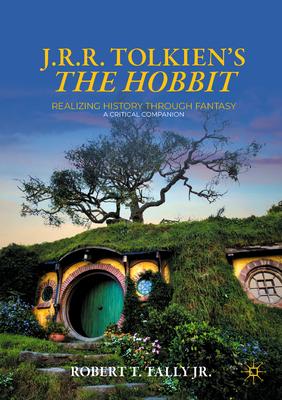This book is a critical introduction to J.R.R. Tolkien's The Hobbit, but it also advances an argument about the novel in the context of Tolkien's larger literary and philosophical project. Notwithstanding its canonical place in the fantasy genre, The Hobbit is ultimately a historical novel. It does not refer directly to any "real" historical events, but it both enacts and conceptualizes history in a way that makes it real. Drawing on Marxist literary criticism and narrative theory, this book examines the form and content of Tolkien's work, demonstrating how the heroic romance is simultaneously employed and subverted by Tolkien in his tale of an unlikely hero, "quite a little fellow in a wide world," who nonetheless makes history. First-time readers of Tolkien, as well as established scholars and fans, will enjoy this engaging and accessible study of The Hobbit.

J. R. R. Tolkien's the Hobbit: Realizing History Through Fantasy: A Critical Companion
This book is a critical introduction to J.R.R. Tolkien's The Hobbit, but it also advances an argument about the novel in the context of Tolkien's larger literary and philosophical project. Notwithstanding its canonical place in the fantasy genre, The Hobbit is ultimately a historical novel. It does not refer directly to any "real" historical events, but it both enacts and conceptualizes history in a way that makes it real. Drawing on Marxist literary criticism and narrative theory, this book examines the form and content of Tolkien's work, demonstrating how the heroic romance is simultaneously employed and subverted by Tolkien in his tale of an unlikely hero, "quite a little fellow in a wide world," who nonetheless makes history. First-time readers of Tolkien, as well as established scholars and fans, will enjoy this engaging and accessible study of The Hobbit.